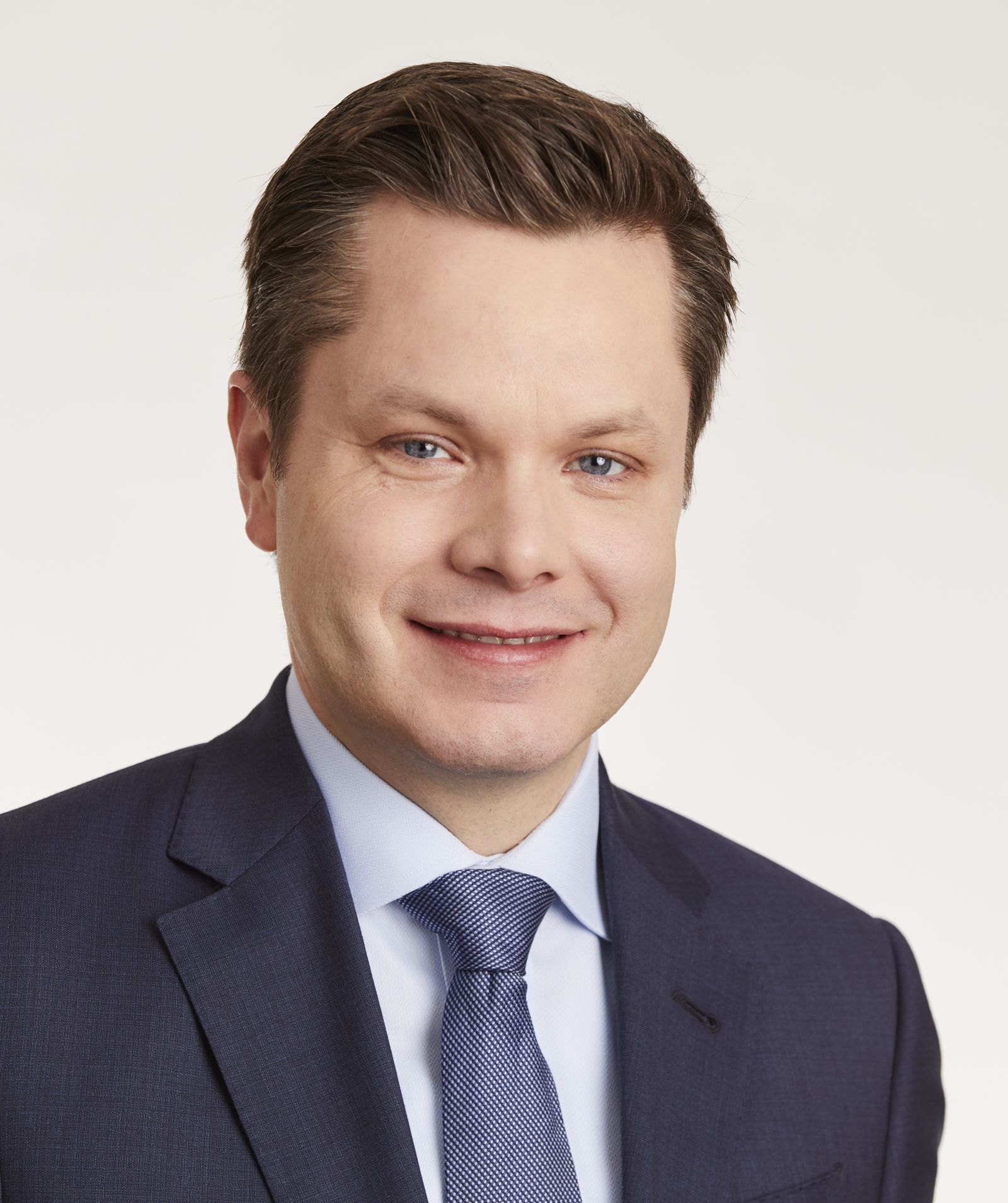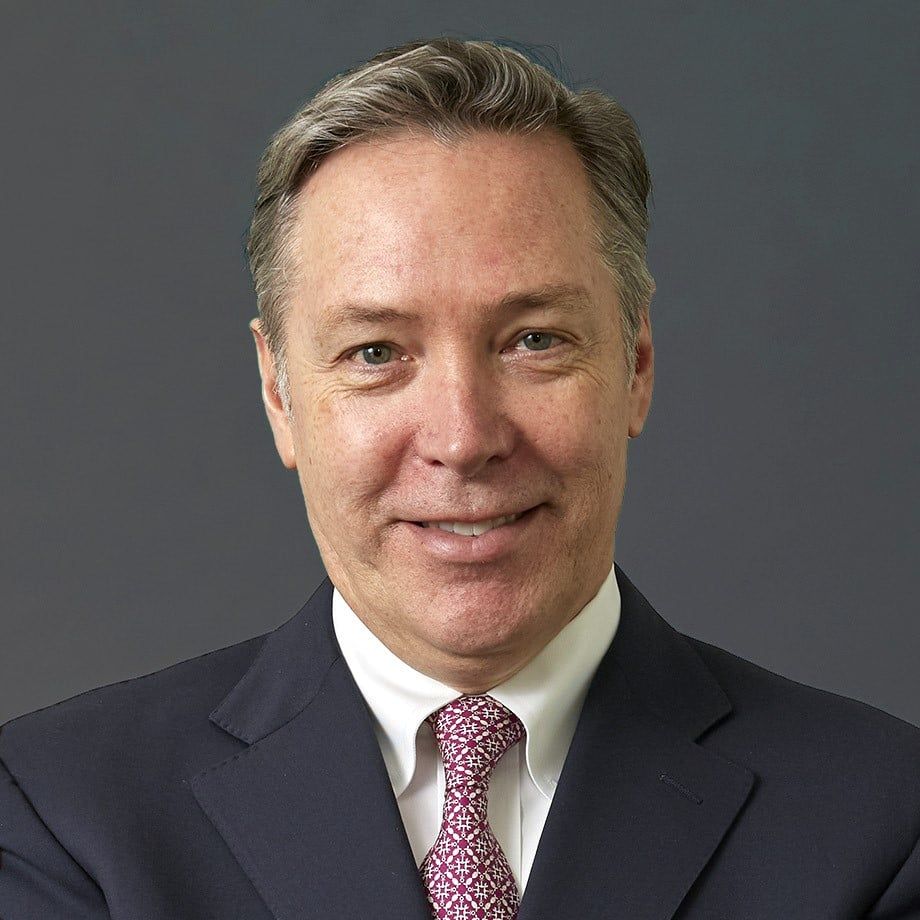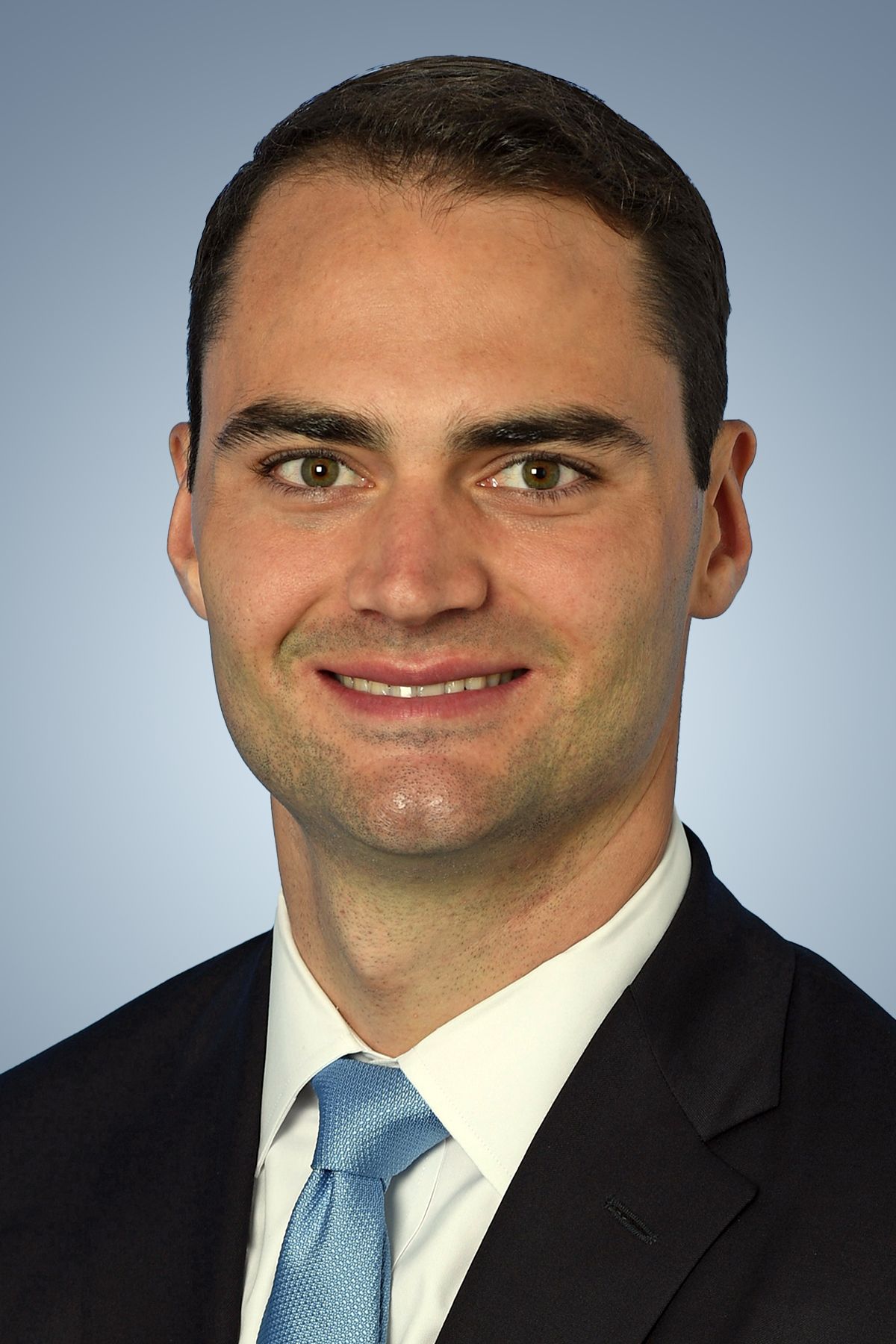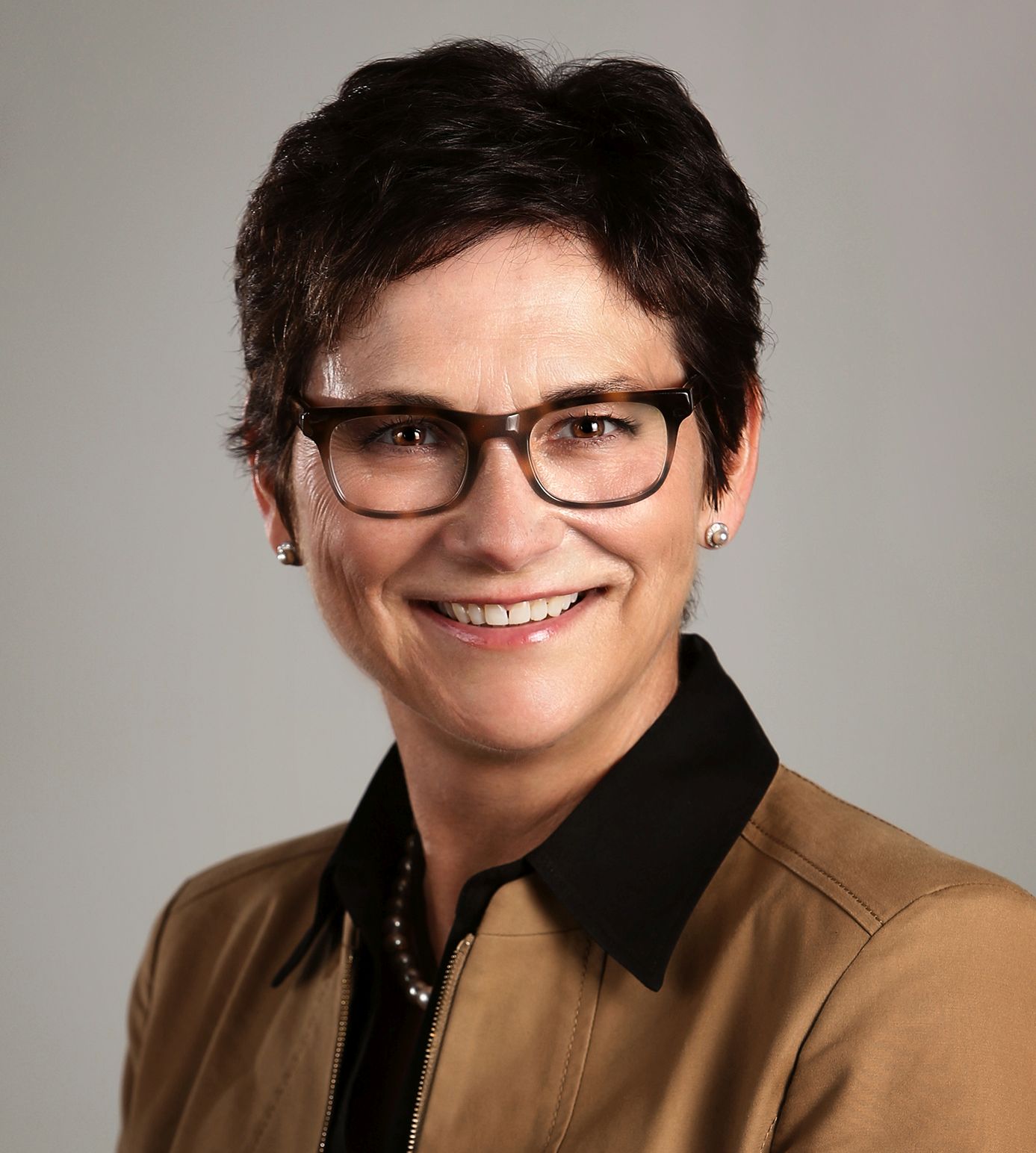Dividend stocks are the sole focus of these exclusive interviews with top portfolio managers in the Wall Street Transcript.

Dennis Sabo, CFA, Co-Portfolio Manager of the Blue Current Global Dividend mutual fund and the Portfolio Manager of the firm’s US Dividend Growth Strategy.
Dennis Sabo, CFA, is a Co-Portfolio Manager of the Blue Current Global Dividend mutual fund and separately managed account strategy, and the Portfolio Manager of the firm’s US Dividend Growth Strategy.
He graduated from the University of Miami with a B.S. in electrical engineering and was a member of the electrical and computer engineering honor society Eta Kappa Nu.
Following college, he worked in the telecommunications industry as an engineer and project manager with Harris Corporation in Florida and later at Cisco (formerly Scientific-Atlanta).
In 2002, Mr. Sabo transitioned his career to the investments industry and graduated from the University of Georgia with an MBA.
He then spent several years as a sell-side equity analyst, first with Robinson Humphrey of Suntrust covering software technology, and later with the Credit Suisse Global Media Team where he was responsible for the U.S. media sector.
Mr. Sabo subsequently joined an emerging hedge fund, Jodocus Capital, where he was a sector generalist and focused on high-quality, small-cap companies.
He joined Blue Current in 2010 and has worked on the Global Dividend strategy with Harry Jones since. Mr. Sabo is a CFA charterholder and a member of the Atlanta Society of Finance and Investment Professionals.
“Our oldest strategy, which is our Global Dividend Growth Strategy, dates back to 2009.
It’s the first strategy that we launched, and the investment philosophy that underpins all of the strategies that we offer and all the different flavors that we offer is emphasizing the importance of dividend growth.
We believe dividend growth is one of the best areas of the overall market to invest in over the long term. For us it is not only buying companies that pay dividends, but more importantly companies that are committed to growing that dividend over time.
In our Global Strategy, which is the easy one to speak about given the longevity of the track record, the average annualized dividend growth rate is about 11%.
If you think about the idea of buying a stock, that stock is paying you a dividend each quarter, semi-annually, annually, however often it pays out, but having that income grow annually over a long period of time creates another lever to compounding growth that we think is often overlooked.”
Lawrence J. Pavelec, CFA, serves in a leadership position for Nicholas Company, Inc. as the Chief Operating Officer and head of product distribution.
He also serves as an analyst and client portfolio manager for the separately managed account equity portfolios.
Mr. Pavelec joined Nicholas Company in 2003 to serve as the Portfolio Manager for the Nicholas High Income Fund and lead the product distribution effort.
His career as a credit analyst and portfolio manager began in 1984 with M&I Investment Management Corp., where he focused on investment-grade corporate bonds, asset-backed securities and mortgage-backed securities.
Before joining Nicholas, he was with Brandes Investment Partners as the co-manager for Brandes Fixed Income Partners, serving as portfolio manager and head of marketing for the firm.
Mr. Pavelec earned his B.S. in finance from the University of Wisconsin at La Crosse.
He has served on various non-profit boards over the years, including the Mequon-Thiensville Education Foundation, North Shore Country Club, and the Peninsula School of Art.

Michael L. Shelton, CFA, Portfolio Manager of Nicholas Equity Income Fund, co-Portfolio Manager of Nicholas Fund
Michael L. Shelton, CFA, joined Nicholas Company, Inc. in 2006. He serves as lead Portfolio Manager of Nicholas Equity Income Fund, co-Portfolio Manager of Nicholas Fund, and is a senior research analyst.
Mr. Shelton has a depth of knowledge following years of covering the health care, technology and industrial sectors.
Prior to joining Nicholas Company, Mr. Shelton worked for the Department of Defense Financing & Accounting Service as a financial analyst.
He spent three years with Robert W. Baird as a research analyst, and at McDonald Investments for one year focusing on health care companies.
Before starting his investment career, he worked with Ernst & Young as an auditor and tax consultant earning his CPA designation in 1995.
Mr. Shelton graduated magna cum laude from Miami University in Oxford, Ohio, and obtained his MBA from Ohio State University.
“The investment process starts with looking for companies that pay a yield greater than the S&P 500, have grown their dividend periodically, and have a reasonable payout ratio.
Next, we assess whether the company has strong underlying fundamentals and possesses a strategic moat.
One differentiator of the Equity Income Fund is that we can own stocks of any market cap.
A lot of dividend funds fall within the Morningstar category of large value.
We have the freedom to own stocks across the market cap universe, and over time we’ve owned companies as small as $1 billion market cap all the way up to the largest market capitalization stocks, such as Apple (NASDAQ:AAPL).
We think this flexibility gives the fund the opportunity to own some of the faster or more differentiated companies that pay dividends.”
Peter Santoro, CFA, is Chief Investment Officer for Invesco U.S. Dividend and Core Equities and a Senior Portfolio Manager for the U.S. Dividend products at Invesco.
He serves as the lead manager for Invesco’s U.S. Dividend strategies.
Mr. Santoro joined Invesco in 2021.
Prior to joining the firm, he was a Senior Portfolio Manager at Columbia Threadneedle Investments on multiple equity strategies. He joined one of the Columbia Threadneedle Investments legacy firms in 2003.
Before that, Mr. Santoro served as an equity analyst for Rockefeller & Company, concentrating on the global consumer sector. Mr. Santoro earned a B.A. degree, cum laude, in history from Amherst College.
“We are flexible, and we go where the opportunity set takes us.
As an example, we started increasing exposure to the energy sector in 2022 even though the sector had been out of favor for many years.
Three of our top 10 holdings are in the energy sector: ConocoPhillips (NYSE:COP), Chevron (NYSE:CVX) and Exxon (XOM).
These companies have found capital discipline, they’ve improved their balance sheets, and they’ve focused on returning capital to shareholders.
That was a big change for energy companies, and that shift made them attractive investment candidates.
From a fundamental perspective, we believe the oil supply/demand relationship can tighten further, with China demand coming back and supply growth still very muted.
We think that it’s fair to say that energy stocks are also discounting a lower oil price than present in the market today.”
Erich M. Patten is the President and Chief Investment Officer of Cutler Investment Group. He also serves as a Portfolio Manager of the Cutler Equity Fund (DIVHX), and serves as President of the Cutler Trust, which provides oversight of the Cutler Equity Fund.
Mr. Patten received his Bachelor of Science in Economics from the University of Pennsylvania, and was awarded his Masters in Public Policy from the University of Chicago.
He is a member of the Bellevue Rotary Club and a Cub Scout leader.
“…We’re looking for companies that do have the ability to grow their earnings, and we’ll apply those value metrics relative to their peers and to other stocks that are available within our universe.
But as you can imagine, when we start with a filter that’s comprised of at least 10 years of dividends without a cut, that universe gets winnowed down.
We cut this list even further, using screens such as industry or lawsuit risk. For example we eliminate the tobacco and firearms industries. Our job as portfolio managers is to identify what we view as the best total return opportunities within that very select universe of stocks.
We are benchmarking to the S&P 500, and really looking to construct a portfolio to keep up with the benchmark on the upside and, importantly, suffer less capital loss during times of market decline.
The consistent dividend payout serves to protect investors and reduces the overall risk of the portfolio.”
Donald J. Nesbitt, CFA, is the Chief Investment Officer and Senior Portfolio Manager for Large Cap Core and Value Equities at ZCM.
He joined the firm in early 2002 after having spent nearly four years at Qwest Communications’ pension plan in Denver, Colorado, where he managed $6 billion of equities using quantitative approaches that exploit behavioral anomalies.
Prior to joining Qwest, Mr. Nesbitt spent nine years at the Illinois Teachers’ Retirement System where, as Chief Investment Officer, he was responsible for the management of $20 billion across various asset classes.
Mr. Nesbitt instructs investment courses at the University of Wisconsin–Milwaukee and has spoken at numerous industry conferences on the topics of enhanced equity management and derivative investment strategies.
He received his M.S. in financial analysis from the University of Wisconsin-Milwaukee, and holds a B.S. in economics from Saint Cloud State University.
He is a CFA charter holder and a member of CFA Institute and CFA Society Wisconsin.
“What we look for in our first screen is an overreaction to the past.
We line up all the stocks in our investable universe, those paying a dividend, and we promote them relative to valuation.
Basically, you get a higher score if you have a lower price-to-cash flow, or flip that around, higher cash flow-to-price.
So we’re looking for basically value-oriented names.
The second variable that we rank on is historical sales growth, and we actually penalize stocks with higher sales growth, which is inverse to what a lot of managers think. In a perfect world, you want cheap stocks that have great growth rates.
The problem is they don’t really exist, because the market focuses on one or the other.
We’re focused on the value proposition.”

Christopher P. O’Keefe, Managing Director of Logan Capital Management, Lead Portfolio Manager, Dividend Performers Strategy
Christopher P. O’Keefe, CFA, is a Managing Director of Logan Capital Management, Inc. and the Lead Portfolio Manager of both the Dividend Performers Strategy and the Dividend Performers Balanced Strategy.
Prior to joining the firm, he managed these strategies at Manulife Asset Management, where he was also the Lead Portfolio Manager.
Earlier, Mr. O’Keefe was an equity Portfolio Manager and Director of Research at Compu-Val Investments, and before that he held analyst positions at CoreStates Investment Advisers and First Pennsylvania Bank.
Mr. O’Keefe earned a B.A. at Villanova University.
“We think last year may have been one of our best years on record, from a relative standpoint.
It’s not too surprising, because the market was down over 18% last year, and dividend growth stocks do tend to be relatively more defensive.
The yield is part of that, for sure, as is their relative quality.
As I mentioned, these companies tend to have very strong business models, well managed, so likely to be able to go through a tough market better than most.
Investors are looking for that kind of durability in a tough market like that. So it was one of our best years, last year in that market.”

Austin R. Kummer, Vice President and Senior Portfolio Manager, Dividend Equity and Multi-Sector Fixed Income, Fort Washington Investment Advisors
Austin R. Kummer, CFA, is Vice President and Senior Portfolio Manager for Dividend Equity and Multi-Sector Fixed Income strategies at Fort Washington Investment Advisors, Inc.
In this role, he is focused on the overall portfolio construction and management of client portfolios.
He also contributes to the firm’s asset allocation and macro positioning.
Mr. Kummer joined Fort Washington in 2013. Prior to becoming a portfolio manager, he was primarily focused on investment-grade credit research and risk management functions.
He received a BBA from Ohio University in finance and business economics, and an MBA in finance from Xavier University.
“Security selection, that’s key to the strategy.
We look for high quality companies with four distinct characteristics.
First, sustainable competitive advantages; second, high returns on capital; third, reliable and growing dividends; and fourth, reasonable valuations.
Briefly, the first, sustainable competitive advantage, is really companies with barriers to entry — structural features that help companies sustain excess profits over a long period of time.
Examples are supply barriers, demand barriers, economies of scale, and government barriers.”

Mary C. Brown, President, Campbell Newman Asset Management
Mary C. Brown is President of Campbell Newman Asset Management, Inc., as well as a Portfolio Manager/Analyst at the firm.
She has over 35 years’ experience in the investment management industry.
During that time, she has gained broad knowledge in securities analysis, portfolio construction, client service, human resource management, regulatory compliance, and strategic planning.
Ms. Brown joined Campbell Newman in November 1986 as an equity analyst; in 1995 she was named Director of Research; and in May 2003, she was elected President.
Ms. Brown graduated from Wheaton College in Norton, Mass., with a B.A. degree, and is a Chartered Financial Analyst charterholder.
She is an active community volunteer, having served on the Board of Directors of Women Investment Professionals and Junior Achievement Women’s Association, as well as Chairman on the Board of Advisors of the Digestive Disease Center at the Medical College of Wisconsin.
“We are truly looking for dividend growth, and what we found in our research is that once a company initiated a dividend, very few companies increased it the first year, the second year, the third year, the fourth year — but once a company got to five years of annualized dividend increases, it tended to become institutionalized.
And you saw perpetuation of those dividend increases; again, that goes back to being an important component of management’s capital allocation policy.
Why do we think that’s important?
Well, the Dividend Growth strategy was designed to participate in up markets and protect in down markets, to outperform over a market cycle, because you know that upside volatility and downside volatility don’t cut equally.
If you can protect on the downside, and participate on the upside, over a market cycle, you should outperform at lower levels of volatility.”

Matthew R. Segura, Director of Institutional Portfolio Management, SKBA Capital Management, LLC.
Matthew R. Segura, CFA, is the Director of Institutional Portfolio Management at SKBA Capital Management, LLC.
He is a member of the Investment Strategy Team and is also a securities analyst. Mr. Segura joined SKBA in 2007 as a member of its research internship program and rejoined SKBA in 2011.
Previously Mr. Segura worked at Charles Schwab & Co. performing several roles: a Cash Management team member in the Treasury, and a Manager in Financial Planning and Analysis for Schwab’s largest retail divisions.
Mr. Segura also served five years active duty in the United States Marine Corps.
Mr. Segura received a B.S. in business administration from Haas School of Business at UC Berkeley.
“We utilize our relative dividend yield discipline to identify opportunities and risks for the portfolio.
The main point of differentiation is our focus on relative, not absolute, yield.
We look at a company’s dividend yield relative to a proprietary universe of other dividend paying stocks and to itself over time.
This could lead us to buy stocks with low absolute yields but high relative to its past, because even with a lower absolute yield the high relative dividend yield compared to its own history may capture pessimism priced in the stock.
Similarly, we might avoid a high absolute yielding stock if its yield is low relative to its past, like a lot of bond substitutes have been over the past five years or so.”
Get the complete detail on these exclusive interviews with the top dividend experts in the United States, exclusively in the Wall Street Transcript.
Expert Nicholas Jansen from Raymond James & Company (NYSE:RJF) Reveals his Top Stock Picks
October 10, 2017
Biotechnology Equity Research Expert, Yun Zhong, Ph.D., Picks Gene Therapy Stocks for Investors
March 22, 2019
Steinberg Global Portfolio Managers Discount CAPE Overvaluation Signal: Deep Fundamental Analysis Reveals Top Picks
August 23, 2018
GROW Funds Portfolio Managers Reveal their Top High Flying Stock Picks
April 04, 2019
Expert Analyst John Benda of the National Securities Corporation Picks the Winners in Multifamily and Other REITs
August 14, 2017